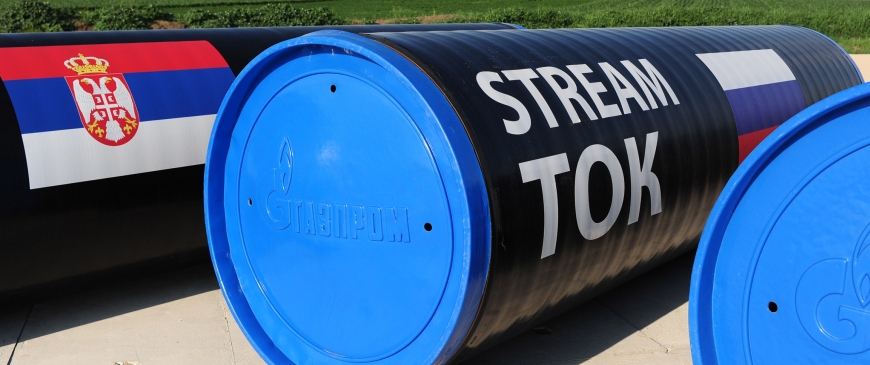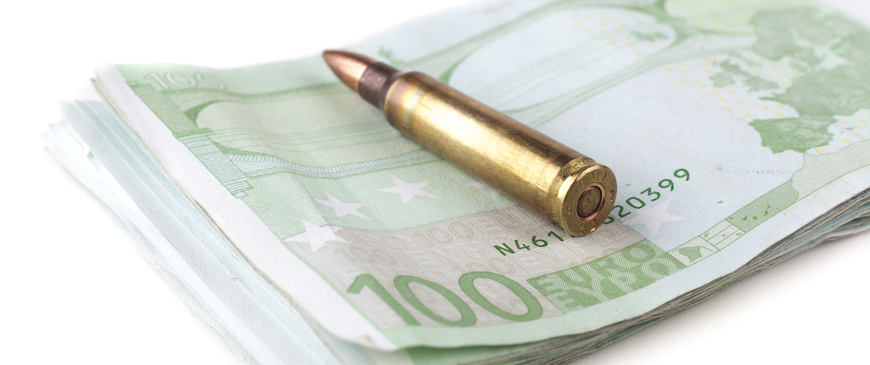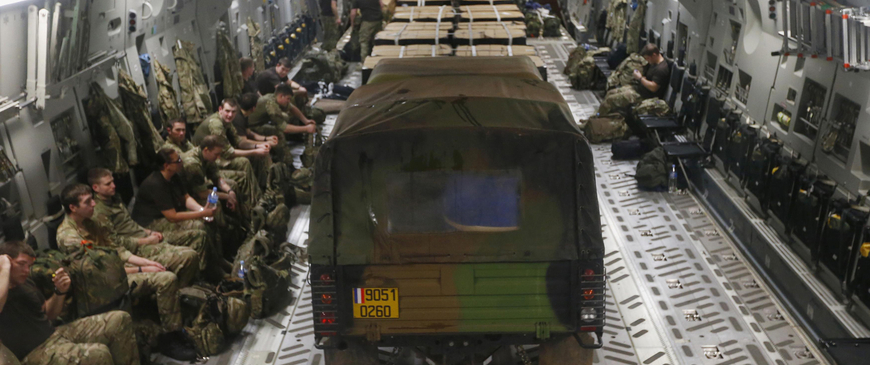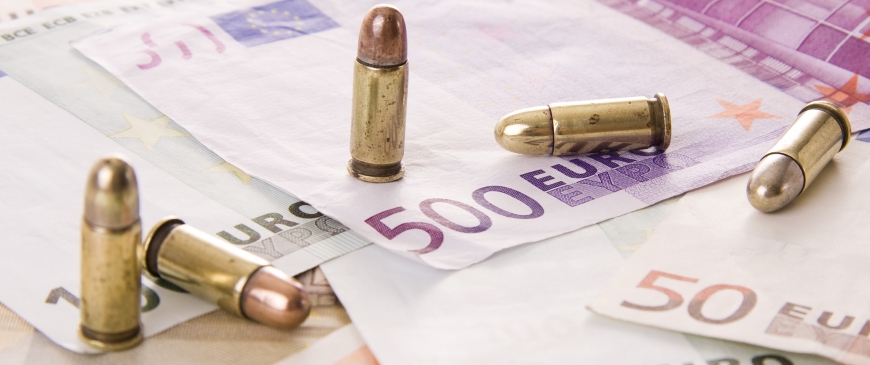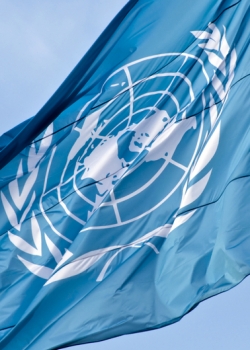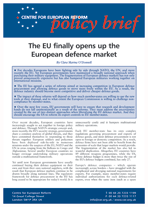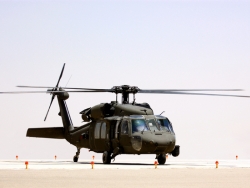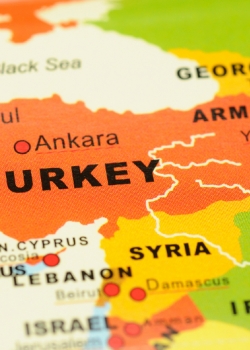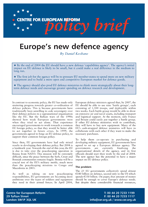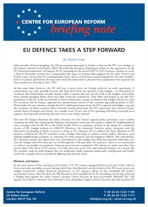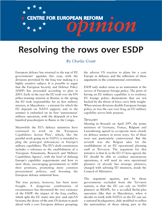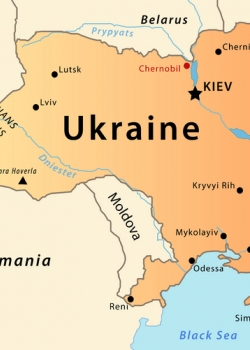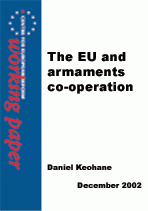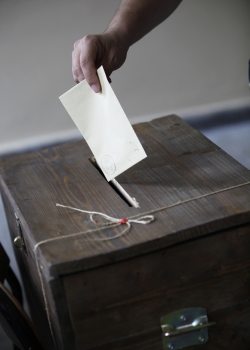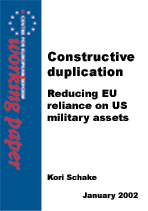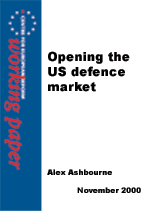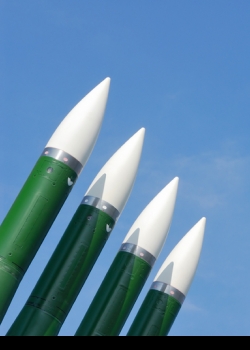Defence co-operation, industry & markets
The EU should do more to support UN peacekeeping in Africa
01 June 2009
The EU likes to highlight its commitment to tackling failed states, addressing humanitarian disasters and bringing order to unstable regions.
The EU finally opens up the European defence market
01 June 2009
For decades Europeans have been fighting side by side. Yet governments have maintained a broadly national approach when purchasing their military equipment.
The EU takes on defence procurement
28 November 2008
The EU is in the middle of a little noticed – but potentially important – debate about defence markets. For the first time, the European Commission could be authorised to help reduce barriers amongst the EU’s segmented national defence markets.
Britain and France must pool parts of their defence
01 August 2006
In European Union defence, Britain and France spend the most money (45 per cent of the total), maintain the largest and most effective expeditionary forces, run the biggest defence industries and manage the most important research facilities.
Issue 49 - 2006
28 July 2006
- Turkey, Russia and modern nationalism, Charles Grant
- Britain and France must pool parts of their defence, Edgar Buckley
- Serbia’s choice, Angela Heath
Europe's new defence agency
04 June 2004
By the end of 2004 the EU should have a new defence 'capabilities agency'. The agency’s initial impact on EU defence is likely to be small, but it could make a real difference in the medium to long run.
A joined-up EU security policy
01 January 2004
EU member-states disagree on whether the EU should have its own military headquarters, or continue to depend on NATO to help run EU operations. This dispute is becoming increasingly theological.
EU defence takes a step forward
05 December 2003
The deal struck between Britain, France and Germany on the future of European defence is good news for those who believe that the EU should focus more on military capabilities than institutions.
Issue 33 - 2003
28 November 2003
- Is Europe working? , Katinka Barysch
- Should Britain hold a referendum on the EU Constitution?, Steven Everts and Charles Grant
- A joined-up EU security policy , Daniel Keohane and Adam Townsend
Resolving the rows over ESDP
03 October 2003
European defence has returned to the top of EU governments’ agendas this year, with the divisions provoked by the Iraq war making it a highly sensitive subject. It is possible to argue that the European Security and Defence Policy (ESDP) has proceeded according to plan in 2003.
The way forward for European defence
01 August 2003
The EU has lost its military virginity. At the request of the UN, the EU sent 1,500 troops to Congo at the beginning of June 2003. The Congo mission is significant for two reasons: it is both the first autonomous EU mission - one that does not rely on NATO's help - and the EU's first military operation outside Europe.
Issue 31 - 2003
25 July 2003
- Tough love for the EU's Eastern neighbours, Heather Grabbe and Henning Tewes
- The way forward for European defence, Daniel Keohane
- Holidays in hell (and Hanover), Alasdair Murray
The EU and armaments co-operation
06 December 2002
Europe needs more military capabilities. Yet European defence budgets are static, and the cost of new military technologies is soaring. It is clear that governments need to extract more value out of each euro they spend.
Issue 26 - 2002
27 September 2002
- The case for a Europe-wide referendum , Steven Everts
- EU foreign policy: A necessity, not an option, David Hannay
- Time for Mr ESDP? , Daniel Keohane
Constructive duplication: Reducing EU reliance on US military assets
04 January 2002
In 'Constructive duplication', Kori Schake asserts that the Bush administration has taken a positive approach to the European Union's attempts to develop a military capability.
Europe's military revolution
02 March 2001
The creation of the single European currency, a revolutionary innovation for the European Union (EU), has provoked tumultuous debate across the continent and beyond. Yet the EU's plans for a common defence policy have - thus far - attracted less attention.
Opening the US defence market
03 November 2000
Many European defence companies aspire to gain access to the US defence market. America has the largest defence budget in the world – some $280 billion, or 3.3 per cent of GDP in 2000 – and is the source of much of the world's most advanced defence technology.
Europe and missile defence
03 April 2000
On each side of the Atlantic a new defence initiative is seen from the other side as unnecessary, confusing and worrying: the Europeans' plan for a European Security and Defence Policy (ESDP) and the Americans' plan for National Missile Defense (NMD).
Open the US defence market
01 February 2000
The consolidation of Europe's defence industry continues apace, with the creation of a Franco-German-Spanish combine, EADS, being the most significant move to date.
Issue 10 - 2000
28 January 2000
- How to help Russia, Charles Grant
- Corruption in Eastern Europe, Liz Barrett
- Open the US defence market, Alexandra Ashbourne

